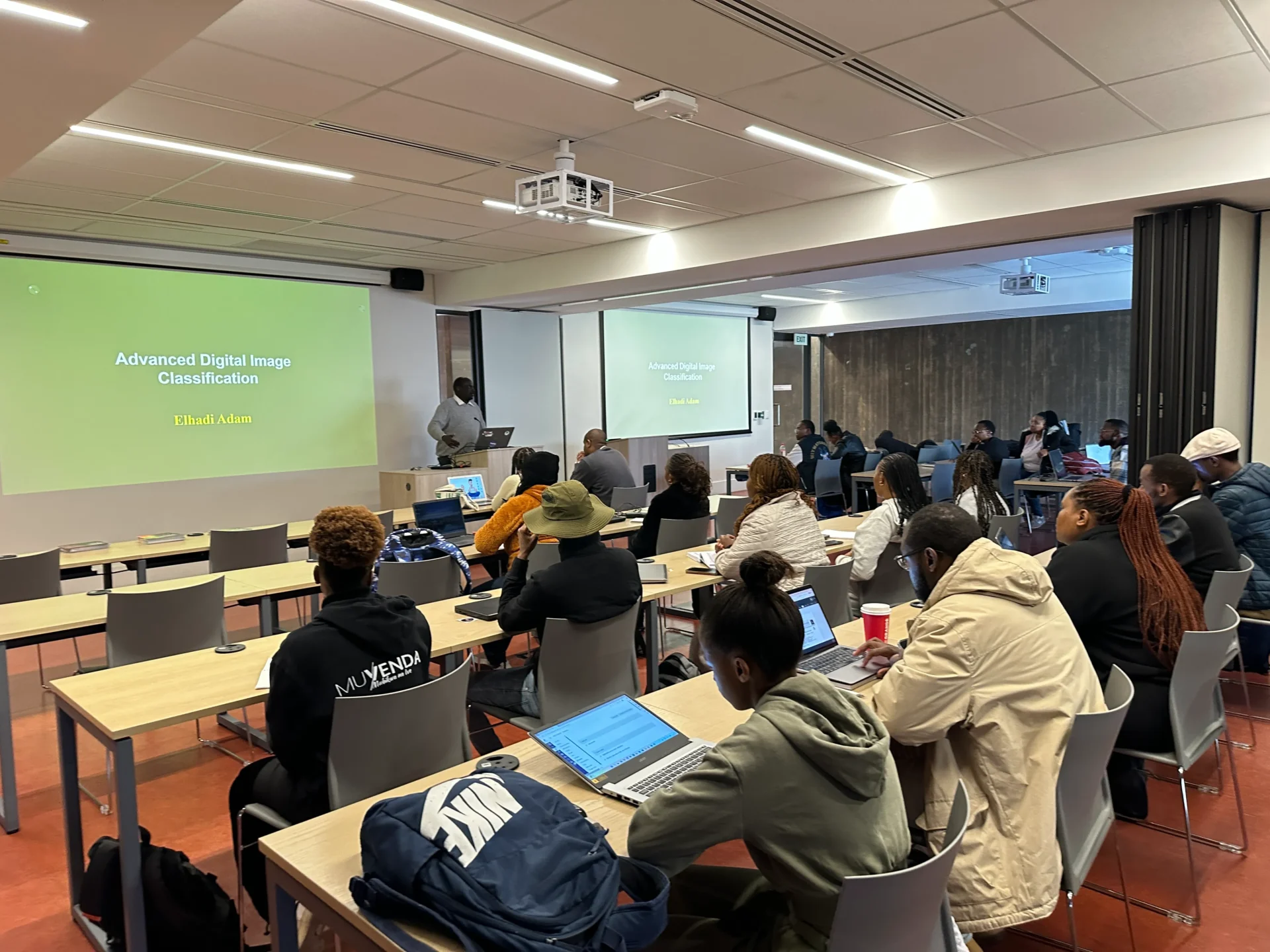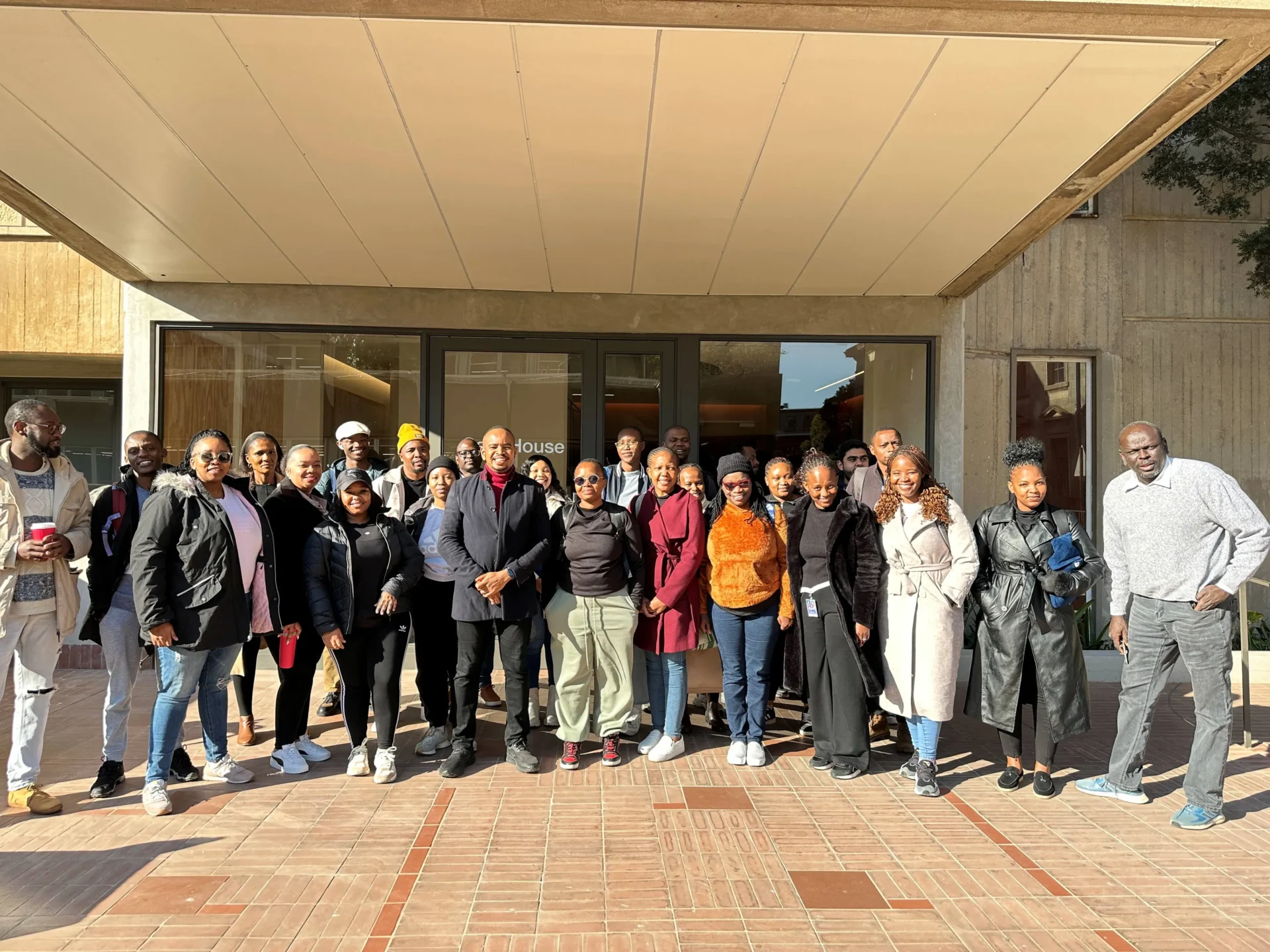From 28 to 31 July 2025, Digital Earth Africa (DE Africa) partnered with the University of the Witwatersrand (Wits) in South Africa to train postgraduate students on the use of satellite data for natural resource management. The sessions were hosted by the School of Geography, Archaeology and Environmental Studies under the leadership of Professor Elhadi Adam.

Prof. Elhadi, a specialist in remote sensing and environmental science, has been at the forefront of applying Earth observation and artificial intelligence to monitor vegetation, agriculture, and biodiversity. His collaboration with DE Africa opened the door for Master’s students in the MSc in Geographic Information Science and Remote Sensing program to gain practical exposure to DE Africa’s tools as part of their Advanced Applied Remote Sensing course.
During the training, students explored how DE Africa supports decision-making in agriculture and food security, water management, coastal and marine environments, and urbanisation. Several participants also completed DE Africa’s online courses and received certificates of completion. This hands-on experience came at a key moment, as the students had just begun developing their research projects and proposals in July, which will run through to the end of the year.
Strengthening ties with Wits allows DE Africa to build on its mission of making analysis-ready Earth observation data accessible to researchers, governments, and communities. For the university, the partnership brings cutting-edge tools into the classroom and expands opportunities for postgraduate teaching and applied research. Dr Kenneth Mubea, Capacity Development Lead at DE Africa, noted that this collaboration ensures students are better equipped to address real development challenges using big data.
Looking ahead, DE Africa will continue to support Wits through more training opportunities for faculty and staff, with the potential to extend the program to other universities such as the University of Johannesburg. For South Africa’s growing space and Earth observation community, this partnership is a step toward stronger collaboration, more innovation, and greater impact on pressing environmental and development issues.
 English
English  Português
Português  Français
Français  العربية
العربية 